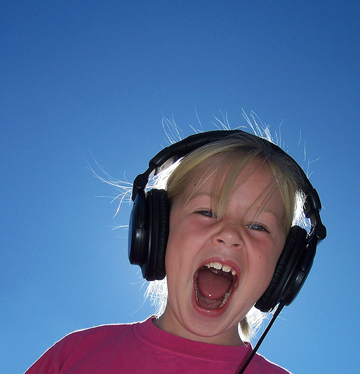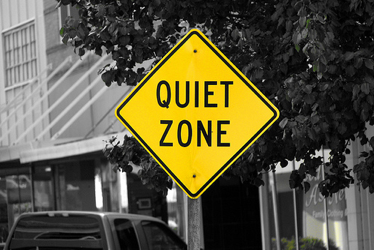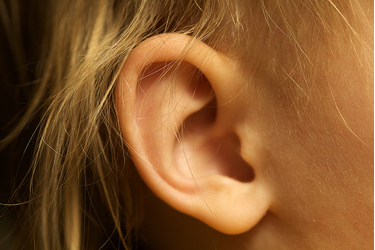There’s a quiet epidemic affecting young people today – or perhaps we should say a not-so-quiet one. All those designer earphones and headphones may be fantastically attractive to young adults but they come with a risk. A recent US report has shown that one in five US teens suffers from some degree of hearing loss, and overexposure to high volumes in their earphones is the number one cause of those problems. The World Health Organization has issued a special report on its concerns, suggesting more than a billion youngsters worldwide may be at risk.

by flattop341
Our hearing is incredibly delicate. The tiny hair-like structures that pick up sound vibrations in our inner ears are so minutely formed that it takes only a few minutes’ exposure to loud noise levels for them to suffer permanent and irrecoverable harm. That damage translates in practical terms to life-long hearing impairment.
The levels at which damage occurs is far less than the maximum levels that typical phones and mp3 players allow, and sustained periods of exposure are particularly damaging. Needless to say, this is just the sort of casual over-exposure that younger people are apt to experience.
In the same way that going for an eye test has become a routine part of all of our lives, hearing specialists are now advocating routine hearing tests. An early warning can be vital as a wake-up call and preventing the sort of progressive damage that casual over-exposure can cause.
In the UK, Hidden Hearing are amongst the leading practitioners in a field that is struggling to get its message across. All those headphones are potentially extremely dangerous if their use is not sensibly managed. And from an auditory point of view, noisy bars and concerts are every bit as risky.
Getting teenagers to recognise the long-term effects of their actions is never easy – getting them to see anything can be a challenge – but this is a message that teens in particular need to take on board. The fact that our hearing is so taken for granted, and that damage can be subtly progressive doesn’t make the job any easier.
Hearing problems in later life are not only awkward from a social point of view, they are also associated with a litany of further issues. Isolation, depression and dementia are not the sort of subjects that are likely to strike much of a chord with kids but that does not mean that they should be simply brushed aside. They are all too real and they are absolutely not what any of us would want for our kids.
Hidden Hearing, as a medically motivated provider, share the belief that helping to reduce hearing damage in the first place is a key part of their mission. The problem of noise-related hearing loss is one that is seriously under-reported.

by CGP Grey
Technological developments may have gone a long way towards improving things for people whose hearing is impaired – miniature and directional hearing aids, such as those from companies like Hidden Hearing, mean that sufferers are far better catered for than ever before. But the simple fact is that prevention is immeasurably better than any technological remedy.


